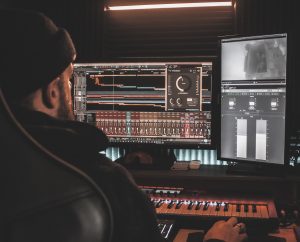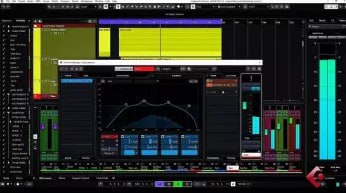30 Music Production Tips and Tricks

Here are 30 music production tips and tricks from musicians and producers that can help you become better at producing music.
- Drums make the beat 9 out of 10 times. Lay your drums track down first and if you want to switch up the beat at some point, either try switching the pattern up, add or take away some aspects (hi-hats, kick, etc), or try using completely different drums. Experiment with what works best for you.
- Focus on making good transitions to have naturally flowing different sections.
- Half-time / double-time sections can feel very different in hip hop. The hi-hat track in particular can vastly change the feel of a beat even if kick and snare are the same. It’s in the details.
- Mess around with filtering and automating effects. That can also spice things up. Often times in boom-bap and other forms of that they filed a lot of highs in the verses to give room for vocals to breathe, but have the hook go balls to the wall.
-
Really learn your daw. You can recreate any expensive plugin by learning the stock plugins. Every plugin boils down to either changing the pitch or the volume. There are loads of videos on youtube with the title “100 tips for Ableton“ or similar. Watch them.
-
try recreating stuff you heard.
-
learn how to use automation.
-
learn the keyboard shortcuts. The more efficient your processes are the more effective you will be at getting the music from your head into your daw
-
learn how synthesizers work – what an oscillator is, how LFO works, what filter and resonance do, how ADSR works.
-
use math to set reverb lengths
-
to learn compression and sidechain compression
-
learn equalizers – you mostly just need high and low settings. Anything else probably hollows out / or makes your sound unnatural.
-
Use live percussion samples to make your songs sound more natural.
-
Use a swing to make your music more human.
-
experiment with microphone positioning.
-
learn a little music theory. Use the Pentatonic scale and from there on adding a few spicier notes.
-
learn to play a little piano. Things you record will sound a lot better than everything quantized.
-
Add barely audible stuff like forest noises, birds, or humans talking to your track as a „floor“ so silence feels more natural.
-
Use a microphone or your phone to record interesting sounds you find and record and use them.
-
start uploading immediately. Your music will sound crap for ages but that’s the learning process and you will get better after every track.
-
build your risers from the sounds of the track you making and don‘t use random sample
-
download sample packs – there are loads of sample packs that are free here at Kits4Beats.
-
learn how to manipulate midi, how to pitch bend, how arpeggiators work
-
freeze tracks to save CPU.
-
watch other people producing in your daw on youtube
-
keep your vsts and samples sorted for quick access.
-
It’s okay to ask for help, advice, or constructive criticism – even from those who have less experience than you.
-
Organize your samples and plugins to make them easy to navigate. This is extremely useful when migrating from one device to another.
-
Spend money where you need to, not where you want to. I see so many music producers throwing away money on equipment, plug-ins, and sample packs they don’t need. Some guys have bought like 50 different EQ plugins and still use Ableton’s default EQ8.
-
Try to listen to your music as often as possible with as many different earphones, speakers, and headphones as possible. ESPECIALLY the cheap ones! Your consumers will be listening using cheap speakers and earphones, so it’s important your music sounds good on those before it sounds good on $2000 studio headphones or monitors.
-
Always come into music production with a positive mindset. For a long time, I spent a lot of recording and studio sessions focusing so much on whether this project would be “the one”, that I lost myself and my passion for music production along the way. Most of my sessions are much more productive when I go in with the intention to have fun and enjoy myself, rather than with the expectation to make a hit.
Making music is a learning process. Every successful music producer struggles at first, but after learning some stuff and with consistency and dedication, anybody can improve at this craft.
One key point also is that you have to finish every piece of music you make whether it’s good or bad and try to improve what you missed on the earlier track and add that element to your next music. That’s how you can grow as a better music producer and as an artist.



Post Comment